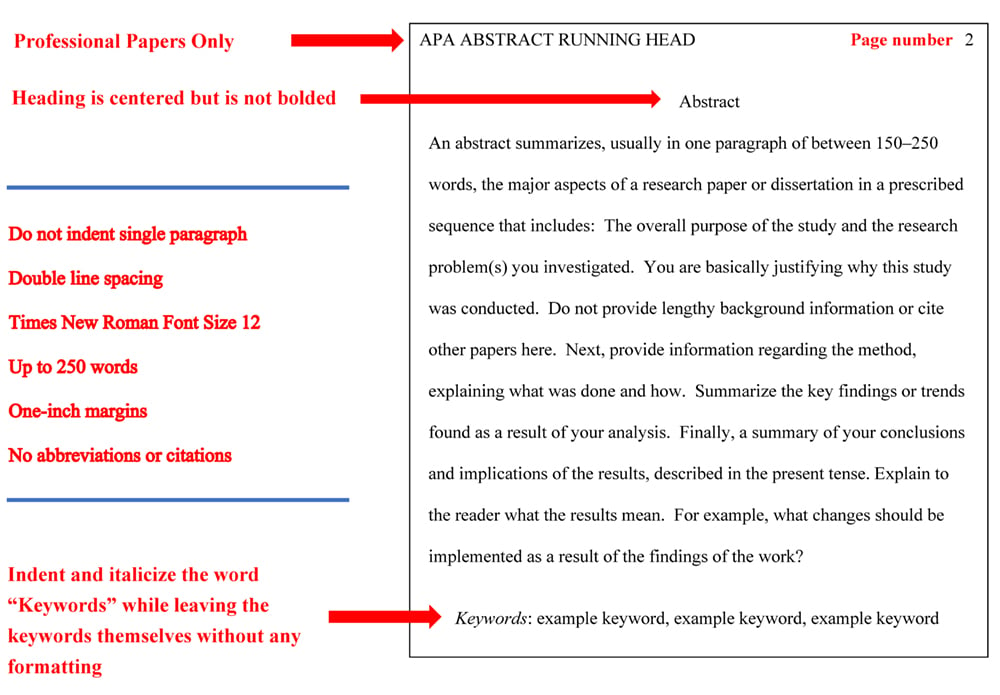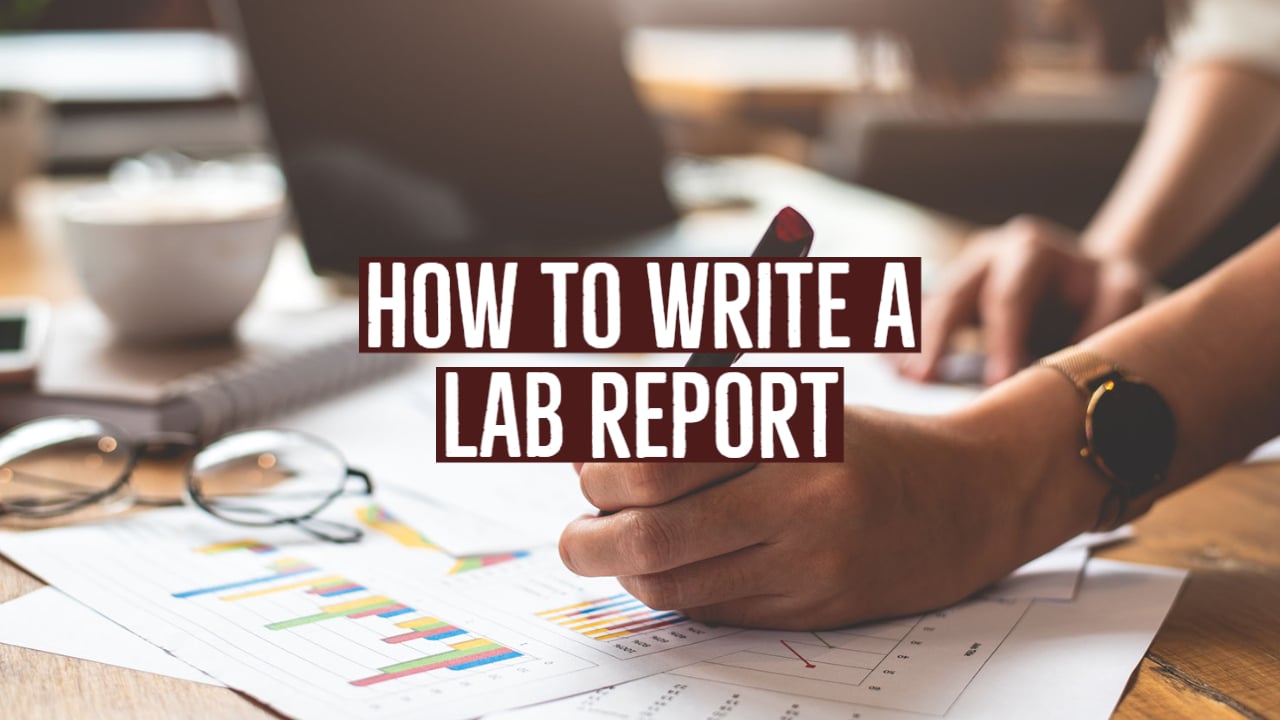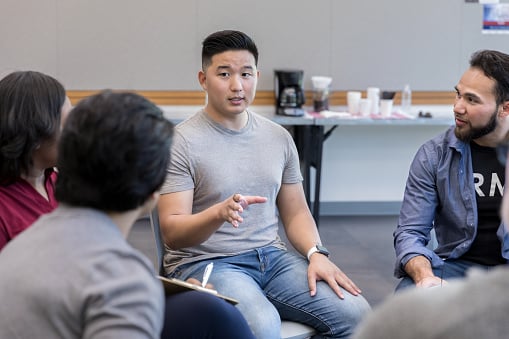- Career Advisor
- Career Coach
- Career Counselling
- What Should I Study?
- Business School
- Best MBA Schools
- Business Analytics
- Business Degrees
- Management Courses
- Marketing Courses
- MBA Online Courses
- Project Management
- Education Masters
- Health Management
- Mental Health
- Mental Health Nursing
- Nursing Degrees
- Nurse Postgraduate
- Psychology Courses
- Psychology Degree
- Social Work
- Cyber Security
- Data Analytics
- Data Science
- Masters Degrees
- Legal Overview


Why I Study Psychology (10 Essays)
Why I Study Psychology is a collection of short essays. Each student explains their motivation for choosing psychology.
Psychology students are often motivated by personal experiences and a wish for healthier, happier communities. The essays demonstrate the value from having a vision for your career – whether it’s detailed or “big picture” – before you start a psychology degree. Having a long-term goal in mind offers a reliable source of study motivation.
Why I Chose Psychology Essays

As part of a national essay competition, current and future psychology students were asked to explain their study motivation. Each student describes in 250 words or less (a) why I chose psychology as a major and (b) how I’m motivated to succeed at psychology studies. The best, most inspiring essays are published here.
1. Motivation
We all know that there will almost always be something to do that sounds much more appealing than our studies, so why do we study if there is something better? Motivation, that’s why. Everyone has their own motivating factor that keeps them in line with studying. Mine is pretty general and that is my future.
I have dreams of becoming a psychologist and helping people throughout my life. I also have a huge passion for American Sign Language. I plan to merge these two goals into one for my future career. I don’t want to be just any psychologist, I want to be a psychologist that is open to Deaf people and hearing people alike. I want Deaf people to feel comfortable coming to me without the need of a third person interpreter who is usually a stranger . Many Deaf people feel uncomfortable visiting a psychologist because of the need for a third person. I plan to make a step towards breaking that barrier by being able to sign or speak with any patient who comes to me.
With all these huge goals I know that I have to be very on top of studies and make sure I continue to stay on track and do my best. All of these reasons put together make up my ideal future and therefore my motivation to study.
~ Hannah Reis, Palomar College
Related: Human Psychology: Study of Mind and Behavior
2. My Dream
We live in a world filled with hurt and suffering, and a place that is not equal for all. My dream is to leverage my unique set of skills, abilities, privileges, resources, and knowledge in a way that increases equality and privilege for all (not just people with white skin). I am pursuing a degree in Industrial and Organizational Psychology which combines psychology and business.
I feel most alive when I am volunteering with my family at The Christian Children’s Home of Ohio (CCHO) which is a non-profit orphanage for children. I love working with the children there, and it hurts my heart when I see them being forced to leave once they are eighteen without any further aid or support. Consequently, after gaining work experience in applying psychology principles to the business world, I intend to establish a non-profit organization . This entity will support young adults from foster care or orphanages, providing them with essential skills and emotional support as they transition to adulthood. Once they have turned eighteen the government will no longer provide very much aid to them; I want to supply them with the additional skills and services that they need to make it in the real world, and give them the emotional support that they may not have.
One of the main services I want to provide them is taking them to do mission work because the best way to grow as a person and gain perspective is through service and travel. When college gets hard, I hold on tight to this dream because I know my studies will help me achieve this dream.
~ Alyssa Powers, The University of Akron
Related: Different Fields of Psychology Study
3. A Catalyst for Change
The incredible transformation I have experienced through the power of therapeutic relationships motivates me to immerse myself in my studies and move closer towards my goal of becoming a psychologist. Recognizing how the quality of my own life has been profoundly enhanced by self-reflection, the invaluable lesson of how to learn from suffering, and coming to a deeper understanding of who I am, encourages me to try and be a catalyst for this kind of change in other’s lives. I’m motivated to empower people to feel confident enough in who they are that they don’t feel the need to bring others down.
When life as a student feels exceptionally challenging, I remind myself of the impact that the work I wish to practice has on people’s lives and those around them. I strongly believe large scale change happens on the individual level first, and if we want to see a world where we value the earth and all the people living on it, we have to do the work with ourselves first. I want to help people in their transformation towards becoming more unconditionally loving, tolerant, and compassionate people . I think when people are more comfortable with, and accepting of, who they are, they are consequently kinder and more loving towards those around them. Encouraging this kind of growth first on an individual level, and ultimately on a global level, motivates me to not only get through, but thrive within my program.
~ Hannah Freund, California Institute of Integral Studies
Related: What Does a Psychologist Do?
4. Reshaping Mental Health
People who are given psychiatric diagnoses experience some of the worst prejudice and discrimination. They are more likely to be the victims of violence, have a harder time securing jobs and housing, and constantly come face-to-face with the harmful stereotypes that state that these individuals are violent and unpredictable. As such, much research needs to be done to understand the cause of such distress, as well as to develop effective interventions and achieve healthy minds.
Our current mental health paradigm, which views distress as primarily biological and best treated medically, has unfortunately increased stigma and disability rates related to mental health. I was one of the fortunate few who was able to pursue a college degree despite being given a severe diagnosis and a hopeless prognosis. However, I know that much of my success has been due to luck and privilege, and the opportunities that I have been afforded are an exception, not a rule. I am striving to change that.
It is my hope that, through increased research and advocacy, society can come to understand that extreme distress is often a message about something that is wrong in a person’s world, and as such, is profoundly meaningful and can be understood. Furthermore, by understanding the psychosocial origins of distress – trauma, poverty, inequality, etc. – we can refocus upstream and create policies that protect against these stressors in the first place.
~ name withheld, Mount Holyoke College
Related: Is Psychology a STEM Major? Science vs Social Science
5. C’s Get Degrees
It is said that “C’s get degrees”, but that isn’t enough for me. C’s show an average amount of work, an average amount of time, an average amount of effort. “Average” is not something that I want to be known as. I want to be known as the girl who kept moving forward, went above and beyond, and never looked back. My driving force is making my family proud and reaching my ultimate goal—becoming a school psychologist.
I am the very first in my family to attend college. Every time the topic of school or my future is mentioned, I can see on their faces that they are overwhelmed with pride. When I received my Associate’s degree, seeing my grandpa cry made me realize how special my academic journey is to them. They have given up so much and have supported me in every way, making them proud is the very least I could do in return.
Becoming a school psychologist has been my dream career since I was in middle school. The thought of being able to connect and help a child grow both academically and socially is the greatest reward I could ever receive . Every time I am procrastinating typing a paper, not studying when I know I should have, or wanting to give up on a difficult problem, I think about my end goal. Making a difference to even just one child will make all of school worth it.
~ Haleigh Cordeiro, California Polytechnic State University
Related: How Long Does It Take to Get a Psychology Degree?
6. Find Your Unconscious

Psychologists have discovered reasons, stages, and correlations among our biopsychosocial make-up. Over the centuries, they have managed to explain why humans experience what occurs in everyday life. They provide answers when we have questions about ourselves; it is for this reason that I strive to major in psychology.
I believe that I can make people in my environment, as well as myself, healthier by providing some sense of clarity whenever life situations become foggy. My dream is to someday become a successful industrial-psychologist. Why not a clinical psychologist, you might ask? While working one-on-one with individuals who are struggling would definitely be rewarding, I believe I can have a greater impact by helping larger groups . This dream of mine to become an industrial-psychologist would allow me to make the environment of common day people the most comfortable and enjoyable one.
Through the study of psychology, I will be able to know what qualities are the most necessary to enrich the daily lives of people and ensure that I apply them to my work. What drives me? The fact that I have seen psychologists help my family make sense of one of the most difficult things that we have gone through. Psychologists helped my sister facing anorexia nervosa deal with her disorder and helped my family become a strong support system to aid my sister’s recuperation. I want to know that I can help other people, psychology will open the doors to this dream of mine.
~ Iridian, Cal State University of Long Beach
Related: Clinical Psychologist
7. My Dream
Over 22 million children in the United States do not live with their biological mother and father and reside with their grandparents. This means that 3 percent of children living in America face the same situation as me. My father and mother were teenagers when they had me, so raising a baby girl was a difficult task for them. Neither of my parents went to college either, so having me took a toll on their lives. For the both of them, college was an opportunity to better their education and be successful, but with me, that would have been harder for them. Living with my grandparents was the best option for me.
I am currently experiencing teenage life and I can understand why raising a child, when you are only a child yourself, is a daunting responsibility. I commend my parents for choosing to provide a better life for me, actively shielding me from adversity and their own struggles. When I enter college, my goal is not just to pass my classes, it is to make something of myself . I know my parents would want that for me.
My dream is to work up to my doctorate and become a psychiatrist, fulfilling every opportunity and experience that comes my way. Psychiatrist Carl Gustav Jung once said “I am not what happened to me, I am what I choose to become”, and through my hardship, I choose to overcome and prepare for my destiny.
~ Nina Grizzle
Related: How to Become a Psychologist
8. Art Therapy
My love for psychology began my junior year when I took the AP course. What was supposed to be a schedule-filling elective credit accidentally grew into a genuine fascination. I found myself going above and beyond the curriculum purely out of curiosity . My interest in what we were discussing in class every day would often send me down long, thought-provoking paths that motivated me to hunt down explanations to the answers of questions I didn’t know I had. But once I had the answers, they seemed to be demanding further explanation, and I was always more than happy to oblige.
With my future education in this field, I aim to innovate art therapy techniques that directly aid individuals with mental disorders and cognitive declines. I feel that experimenting with the effects that art has on people’s brain chemistry will open up a new type of therapy that can be clinically prescribed. According to the National Alliance on Mental Illness, approximately 52.9 million adults in the United States suffer from mental illnesses. This new form of therapy could possibly improve the mental state of the millions of people impacted while inspiring the creation of art.
~ Taylor Himes, University of Texas San Antonio
Related: Psychology Symbol Ψ (Psi or Trident): Greek Text and Images
9. If You Put Your Mind To It
For as long as I can remember, I knew that I wanted to make a difference in the world. I knew that the first step was to attend an accredited university, and that university happens to be Michigan State. I went into college with the dream of becoming a doctor, however, I had a change of heart.
At the beginning of my freshmen year, the unthinkable happened. My dad committed suicide. My world came crashing down. It was a complete shock. My dad always kept all his feelings masked. I never knew what he was going through, and everyday I regret not paying closer attention. Not a day goes by where I don’t think about him. If only I had known. I could’ve done something. That experience then motivated me to change my major to psychology.
I’ve always wanted to make a difference, and now I know exactly how to achieve that dream. I aim to support those enduring what my dad went through. I want to be there for them, to help them overcome their inner demons. I want to let them know that their lives are worth living. Losing a family member to suicide is one of the most detrimental events that anyone can ever endure, and if I can one day prevent someone from experiencing that, then I would have accomplished my goal; I will make a difference.
~ Kayla Harper, Michigan State University
Related: Is Psychology a Hard Major?
10. Motivated by God to Help Others
I’ve heard from so many different people how difficult college can be. Late nights, big tests, difficult and early classes, that doesn’t even sound like fun. The only thing that keeps me moving towards college is the idea of being able to help other people when I graduate.
In December of 2016 I travelled halfway around the world to the Philippines. While I was there I met 15 wonderful children with horrible backgrounds. The love these children missed out on for so many years is heartbreaking. My future goal is to study Psychology and Religion at Liberty University.
The dream that keeps me motivated to go back to school is the chance to help many , not just children, but anyone who needs a listening ear and a voice to discuss their problems. People need more people to care and who want to listen. If people would feel the love that God made for them this world would be a much better place.
~ Trinity Rake, Liberty University
Related: Difference Between Counselling and Psychology
- About Author
- Latest Posts

Writing Team
Latest posts from writing team.
- Top 7 Advantages to Online Classes - May 29, 2024
- Are MBA Admissions Consultants Worth It? When to Hire - May 24, 2024
- Alternatives to Standardized Testing for Assessing Students - May 23, 2024
Get university advice on The Student Room app
- Teacher training
- Bangor University
- Birmingham City University
- Sheffield Hallam University
- University of Aberdeen
- University of East Anglia
- University of Hull
- University of Kent
- University of Reading
- A-level choices
- GCSE choices and university
- Choosing a course
- Making firm and insurance choices
- University open days
- Top questions to ask at a university open day
- Ucas Extra explained
- Understanding conditional offers
- University offers: what they mean and what to do next
- Getting the most from Ucas university fairs
- What do I need to get into Oxbridge?
- What to do if you don’t get an offer from your first choice university
- What you need to know about getting a university scholarship, grant or bursary
- AS and A-levels explained
- Is a higher or degree apprenticeship right for you?
- Universities
By Nik Taylor (Editor, The Uni Guide) | 21 September 2023 | 10 min read
Writing a psychology personal statement: expert advice from universities
Get tips from the top to help you nail your psychology personal statement
Share this page
Email & print.

Research the course and make it clear that you understand what it’s all about
- Read more: how to write an excellent personal statement in ten steps
Keep it focused on you
… but make sure you understand what the course is all about and keep it academic.
- Read more: how to write your university application
Answer the question of why you want to study psychology
- Read more: teacher secrets for writing a great personal statement
Show the range of your interest
- Read more: personal statement FAQs
Highlight any relevant work experience
- Read more: the ten biggest mistakes to avoid when writing your personal statement
And work experience outside the healthcare sector could still be relevant, too
- Read more: universities reveal all about personal statements
Reflect on your relevant experience
- Read more: universities explain how to end your personal statement with a bang
Avoid cliches
- Read more: how to write your personal statement when you have nothing interesting to say
Let it all flow out in your first draft
- Read more: how long does it take for universities to reply to your application?
Don’t worry if you don’t know exactly where you want your career to take you yet
And a few final tips from universities…, you may want to look at these..., how to write an excellent personal statement in 10 steps.
Help and advice on putting your application together
Personal statement FAQs
We've gone through some of the most commonly asked personal statement questions and put all the answers in one place
Personal statement secrets – universities reveal all
Want to know how to craft an amazing personal statement? Take some advice from the experts...
Related to this article
Search the uni guide, find further advice or search for information on a course or university.
- Search Advice
- Search courses &/or universities
The Uni Guide and The Student Room are both part of The Student Room Group.
Promoted universities
- Durham University
- Lancaster University
- University of Glasgow
- University of the Arts London
- University of Southampton
- Aston University, Birmingham
- Swansea University
- Ulster University
- Cardiff University
Browse expert advice
- Oxbridge applications
- Ucas application
- Personal statements
- Ucas deadline 2024 countdown
- Clearing and results day
- Preparing for university
- Student accommodation
- Student life
- Student finance
- Advice for parents
About this site
- Cookie policy
- List of universities and colleges
- Privacy notice
- Terms and conditions
- Where we get our info
Who we work with
- Your account settings
Ad privacy settings
Popular tools and features
- A-level Explorer
- Course search

Connect with us

- Bipolar Disorder
- Therapy Center
- When To See a Therapist
- Types of Therapy
- Best Online Therapy
- Best Couples Therapy
- Best Family Therapy
- Managing Stress
- Sleep and Dreaming
- Understanding Emotions
- Self-Improvement
- Healthy Relationships
- Student Resources
- Personality Types
- Guided Meditations
- Verywell Mind Insights
- 2024 Verywell Mind 25
- Mental Health in the Classroom
- Editorial Process
- Meet Our Review Board
- Crisis Support
10 Things We Can All Learn From Psychology
Kendra Cherry, MS, is a psychosocial rehabilitation specialist, psychology educator, and author of the "Everything Psychology Book."
:max_bytes(150000):strip_icc():format(webp)/IMG_9791-89504ab694d54b66bbd72cb84ffb860e.jpg)
Emily is a board-certified science editor who has worked with top digital publishing brands like Voices for Biodiversity, Study.com, GoodTherapy, Vox, and Verywell.
:max_bytes(150000):strip_icc():format(webp)/Emily-Swaim-1000-0f3197de18f74329aeffb690a177160c.jpg)
Jamie Grill/Getty Images
Why should you study psychology? There are plenty of great reasons to learn about psychology, even if you are not a psychology major or do not plan to work in a psychology-related profession. Psychology is all around you and touches on every aspect of your life. Who you are now, how you will be in the future, how you interact with family, friends, and strangers; these are all things that psychology can help you better understand. Here are 10 reasons we we think everyone should learn at least a little bit about psychology.
Understand Yourself Better
As you learn about how development occurs, personality forms, and factors like society and culture impact behavior, you may find yourself gaining a deeper understanding of many influences that have impacted your own life.
Learn About Research Methods
Having a basic understanding of psychological research methods can help you better understand some of the many claims you’ll encounter in books, magazines, television shows, and movies. Becoming a better-informed consumer of psychology means that you will be equipped to sort out the truth from the fiction surrounding many pop psychology myths.
Improve Your Understanding of Others
The next time someone behaves in a certain way, you may be better able to understand the influences and motivations behind their actions.
Become a Better Communicator
Studying subjects such as emotion , language, and body language can help you fine-tune your interpersonal communication skills. By learning more about these things, you can gain a greater understanding of other people and what they are trying to say.
Develop Critical Thinking Skills
As you study psychology you will learn more about topics such as the scientific method, decision-making , and problem-solving, all of which can help your critical thinking skills for a variety of issues.
Help You in Your Future Career
Sure, there are plenty of exciting careers in psychology that you might want to explore, but studying the subject can help you in many other professions as well. For example, if you want to become a business manager, understanding human behavior can improve your ability to manage and interact with your employees.
Learn About Human Development
Understanding how people change and grow throughout the lifespan can make it easier to understand the children in your life, as well as your aging parents. It can also shine a light on your own experiences as you encounter different challenges and opportunities as you age.
Complement Other Areas of Study
Because different areas of psychology encompass a range of topics including philosophy, biology, and physiology, studying the subject can help you gain a richer understanding of these related areas.
Develop Insight Into Mental Illness
While you might not be interested in becoming a psychotherapist, studying psychology can help you better understand how psychological conditions are diagnosed and treated.
You can also discover how mental wellness can be enhanced, how to reduce stress, how to boost memory , and how to live a happier, healthier life.
Can Be Fun and Fascinating
From intriguing optical illusions that reveal the inner workings of the brain to shocking experiments that expose how far people will go to obey an authority figure, there is always something amazing and even downright astonishing to learn about the human mind and behavior.
Schwarz N, Newman E, Leach W. Making the truth stick & the myths fade: Lessons from cognitive psychology . Behavioral Science & Policy . 2016;2(1):85-95. doi:10.1353/bsp.2016.0009
American Psychological Association. Preparing to use your bachelor's degree in psychology .
American Psychological Association. Science of Psychology .
By Kendra Cherry, MSEd Kendra Cherry, MS, is a psychosocial rehabilitation specialist, psychology educator, and author of the "Everything Psychology Book."
- Applying to Uni
- Apprenticeships
- Health & Relationships
- Money & Finance
Personal Statements
- Postgraduate
- U.S Universities
University Interviews
- Vocational Qualifications
- Accommodation
- Budgeting, Money & Finance
- Health & Relationships
- Jobs & Careers
- Socialising
Studying Abroad
- Studying & Revision
- Technology
- University & College Admissions
Guide to GCSE Results Day
Finding a job after school or college
Retaking GCSEs
In this section
Choosing GCSE Subjects
Post-GCSE Options
GCSE Work Experience
GCSE Revision Tips
Why take an Apprenticeship?
Applying for an Apprenticeship
Apprenticeships Interviews
Apprenticeship Wage
Engineering Apprenticeships
What is an Apprenticeship?
Choosing an Apprenticeship
Real Life Apprentices
Degree Apprenticeships
Higher Apprenticeships
A Level Results Day 2024
AS Levels 2024
Clearing Guide 2024
Applying to University
SQA Results Day Guide 2024
BTEC Results Day Guide
Vocational Qualifications Guide
Sixth Form or College
International Baccalaureate
Post 18 options
Finding a Job
Should I take a Gap Year?
Travel Planning
Volunteering
Gap Year Blogs
Applying to Oxbridge
Applying to US Universities
Choosing a Degree
Choosing a University or College
Personal Statement Editing and Review Service
Guide to Freshers' Week
Student Guides
Student Cooking
Student Blogs
- Top Rated Personal Statements
Personal Statement Examples
Writing Your Personal Statement
- Postgraduate Personal Statements
- International Student Personal Statements
- Gap Year Personal Statements
Personal Statement Length Checker
Personal Statement Examples By University
Personal Statement Changes 2025
- Personal Statement Template
Job Interviews
Types of Postgraduate Course
Writing a Postgraduate Personal Statement
Postgraduate Funding
Postgraduate Study
Internships
Choosing A College
Ivy League Universities
Common App Essay Examples
Universal College Application Guide
How To Write A College Admissions Essay
College Rankings
Admissions Tests
Fees & Funding
Scholarships
Budgeting For College
Online Degree
Platinum Express Editing and Review Service
Gold Editing and Review Service
Silver Express Editing and Review Service
UCAS Personal Statement Editing and Review Service
Oxbridge Personal Statement Editing and Review Service
Postgraduate Personal Statement Editing and Review Service
You are here
- Mature Student Personal Statements
- Personal Statements By University
- Accountancy and Finance Personal Statements
- Actuarial Science Personal Statements
- American Studies Personal Statements
- Anthropology Personal Statements
- Archaeology Personal Statements
- Architecture Personal Statements
- Art and Design Personal Statements
- Biochemistry Personal Statements
- Bioengineering Personal Statements
- Biology Personal Statements
- Biomedical Science Personal Statements
- Biotechnology Personal Statements
- Business Management Personal Statement Examples
- Business Personal Statements
- Catering and Food Personal Statements
- Chemistry Personal Statements
- Classics Personal Statements
- Computer Science Personal Statements
- Computing and IT Personal Statements
- Criminology Personal Statements
- Dance Personal Statements
- Dentistry Personal Statements
- Design Personal Statements
- Dietetics Personal Statements
- Drama Personal Statements
- Economics Personal Statement Examples
- Education Personal Statements
- Engineering Personal Statement Examples
- English Personal Statements
- Environment Personal Statements
- Environmental Science Personal Statements
- Event Management Personal Statements
- Fashion Personal Statements
- Film Personal Statements
- Finance Personal Statements
- Forensic Science Personal Statements
- Geography Personal Statements
- Geology Personal Statements
- Health Sciences Personal Statements
- History Personal Statements
- History of Art Personal Statements
- Hotel Management Personal Statements
- International Relations Personal Statements
- International Studies Personal Statements
- Islamic Studies Personal Statements
- Japanese Studies Personal Statements
- Journalism Personal Statements
- Land Economy Personal Statements
- Languages Personal Statements
- Law Personal Statement Examples
- Linguistics Personal Statements
- Management Personal Statements
- Marketing Personal Statements
- Mathematics Personal Statements
- Media Personal Statements
- Medicine Personal Statement Examples
- Midwifery Personal Statements
- Music Personal Statements
- Music Technology Personal Statements
- Natural Sciences Personal Statements
- Neuroscience Personal Statements
- Nursing Personal Statements
- Occupational Therapy Personal Statements
- Osteopathy Personal Statements
- Oxbridge Personal Statements
- Pharmacy Personal Statements
- Philosophy Personal Statements
- Photography Personal Statements
- Physics Personal Statements
- Physiology Personal Statements
- Physiotherapy Personal Statements
- Politics Personal Statements
Psychology Personal Statement Examples
- Radiography Personal Statements
- Religious Studies Personal Statements
- Social Work Personal Statements
- Sociology Personal Statements
- Sports & Leisure Personal Statements
- Sports Science Personal Statements
- Surveying Personal Statements
- Teacher Training Personal Statements
- Theology Personal Statements
- Travel and Tourism Personal Statements
- Urban Planning Personal Statements
- Veterinary Science Personal Statements
- Zoology Personal Statements
- Personal Statement Editing Service
- Personal Statement Writing Guide
- Submit Your Personal Statement
- Personal Statement Questions 2025
- Personal Statement Changes 2024
Our psychology UCAS personal statement examples below will inspire you to write your own unique statement, and help you understand how students have successfully applied for a psychology degree in the past.
What else can I find on this page?
What is a psychology personal statement?
How do i write a psychology personal statement, what should i include in my psychology personal statement.
- How do I write my psychology personal statement introduction?
How do I write the conclusion for my psychology personal statement?
What can i do with a psychology degree.
- What are the best UK universities for psychology?
A psychology personal statement is a creative piece of writing that demonstrates your skills, experience and hobbies/extracurricular activities and how they relate to a degree in psychology.
Psychology has always been a popular and therefore competitive subject, so you need to make sure your statement stands out from the crowd and is as polished as you can make it.
At Studential, we always recommend students start by making a series of notes about themselves, which they can then use to put together a coherent personal statement. These should include:
- Specific aspects of the course that interest you
- Examples of coursework or projects you have completed
- Books, articles, etc. you have read related to the subject area
- Work experience or voluntary work in this area
- Conferences you have attended
- Personal experiences that sparked your interest in this subject
- What you hope to do once you have completed your degree in terms of your career
- Experiences that show you are a reliable and responsible person, e.g. part-time job, small business enterprise, community and/or charity work, sixth form committee, helping out at school events, etc.
You also need to think about your interests and skills, such as hobbies, other languages you speak, etc. as well as your plans for a gap year (if you're planning on taking one).
Once you have written all these down, you think about your opening paragraph, and begin to get something down. It's a good idea to allocate at least one paragraph to each bullet point to make sure you've covered everything.
When you have your first draft in place, you can revise it and ask your family, friends and tutors for help. Incorporate any feedback, comments and suggestions they offer, and see if they improve your statement.
Keep redrafting until you feel it's as polished as possible - remember, you'll be facing some stiff competition!
- The main aim of your personal statement is to show the admissions tutors why they should pick you to attend their course and university.
- Look at the course content and link it to your personal qualities, future goals and achievements. For example, you might have done some work shadowing at a counselling clinic or peer mentoring at your school or college.
- If you're applying for a joint honours, make sure you cover both subjects in the course.
- For those applying for a postgraduate course, draw attention to any clinical work experience you've completed to demonstrate your expertise and knowledge in the subject.
- Read our psychology personal statement examples above for inspiration on how to make yours a success (please don't plagiarise them!).
- Remember to avoid using cliches, over-used words or phrases, humour, jokes, or taking any political or religious viewpoints.
- Structure it with a clear introduction, middle and end. You only have 4,000 characters to sell yourself, so try to make every word count!
For more help and advice on what to write in your psychology personal statement, please see:
- Personal Statement Editing Services
- Personal Statement Tips From A Teacher
- Analysis Of A Personal Statement
- The 15th January UCAS Deadline: 4 Ways To Avoid Missing It
- Personal Statement FAQs
- Personal Statement Timeline
- 10 Top Personal Statement Writing Tips
- What To Do If You Miss The 15th January UCAS Deadline.
How do I write a psychology personal statement introduction?
We recommend starting your psychology personal statement with either a story about how you came to be interested in the subject, or picking one or two aspects that you particularly enjoy and why you find them interesting. For example, the following applicant has chosen to talk about their childhood, and the consequences of their behaviour:
"Psychology encapsulates every aspect of our lives. From childhood, the reasons behind why we do what we do has fascinated me; and when I was disciplined for the type of mischief that one commits at a young age, my reasoning for my actions were always “To see what would happen.”
My parents mistook this as an act of mindless disobedience whereas it was in fact my first attempt at social psychology. Then, as I further discovered the leading figures in psychology, my knowledge and love of the intricacies of the human and animal mind grew."
These introductory paragraphs explain why the candidate is keen to pursue a course in psychology at university, while at the same time relating an engaging anecdote from their past, which helps to draw the reader in and make them want to read on further.
Another applicant who has submitted their statement to Studential has decided to talk about their Uncle, who has Asperger's Syndrome, and how they wondered why he was so different from everyone else:
"It was the odd behavioural traits displayed by my uncle, who has Asperger’s syndrome that first generated from a young age my questioning about why he acted so ‘differently’ to the rest of us.
This was part of what led to my interest of studying psychology, as it made me question how and why humans are so disparate from one another, and what part the brain plays in running our everyday lives."
Again, this provides an interesting hook for the reader, while demonstrating why they want to study psychology at a higher level.
These two examples should give you a good idea of how you might go about writing your own unique introduction to your psychology statement, but if you feel you need further inspiration, take a look at our list of over 100 psychology personal statement examples for more ideas.
To round off your personal statement, we suggest a paragraph or two about your extracurricular activies and hobbies, and how they have helped you to develop skills that will aid you with your psychology course at university. You may also wish to include a short sentence or two about your future ambitions or career plans, and how a degree in psychology will help you achieve these.
For example, this applicant has chosen to conclude their statement by talking about their current work experience and how it has improved their communication skills, along with their desire to complete a PhD once they've finished their undergraduate degree:
"I currently help people who struggle with language barriers by being a Spanish interpreter in different fields. Observing people from different age and cultural groups gave me first-hand experience considering the effects of stress due to the inability to communicate. This has, in addition to improving my communication skills, taught me how to deal with people from different social groups. I believe these interpersonal skills are valuable in the world of psychological research, in order to build rapport with participants in certain contexts. It has also taught me tolerance for others and the ability to remain poised during stressful situations. To culminate, in regards to my future career plans I would like to remain in further education and do a Phd in psychology- a step forward in my desired career as a researcher."
As another example, you can see how a candidate below chooses to talk to about their work experience with elderly people that have dementia, and how they want to improve their knowledge of the brain and their problem-solving skills:
"Subsequently, I did work experience at St Peter's residential care home. During my placement, I worked with nurses and kitchen staff to provide quality service to the elderly. I assisted in serving tea and lunch and also interacted with the elderly during social activities. This helped me to know how to interact with elderly people with dementia and gain a different perspective on elderly people.
I want to study psychology to further develop my knowledge in the scope of the brain, its anatomy and how it works. I want to learn how to work through problems carefully and logically applying scientific principles. Furthermore, I want to expand my awareness in all the different fields involved in the course, so that I can master any situation that I am presented with in my chosen field."
However you decide to conclude your statement, always try to relate it to the course you are applying for, i.e. psychology, and end on a positive, enthusiastic note that will make the admissions tutor want to make you an offer.
For more inspiration on how to write a conclusion, please take a look at our psychology personal statement examples .
For those with a psychology degree, there are many career options available, including:
- Clinical psychologist
- Counselling psychologist
- Educational psychologist
- Forensic psychologist
- Further education teacher
- Health psychologist
- High intensity therapist
- Occupational psychologist
- Psychological wellbeing practitioner
- Sport and exercise psychologist
Other career paths where a psychology degree could be useful include:
- Advice worker
- Border Force officer
- UCAS Careers advice
- Chaplain
- Counsellor
- Detective
- Education consultant
- Human resources officer
- Life coach
- Market researcher
- Mediator
- Neuroscientist
- Play therapist
- Policy officer
- Psychotherapist
- Special educational needs coordinator (SENCO)
For more help and advice on psychology careers, please see Prospects and the British Psychological Society .
What are the best universities for psychology?
Currently the best UK universities for studying psychology at are:
| 1. | |
| 2. | |
| 3. | |
| 4. | |
| 5. | King's College London |
| 6. | |
| 7. | Bristol |
| 8. | University of Exeter |
| 9. | Durham University |
| 10. |
For more information about UK university rankings for psychology, please see The Guardian and The Complete University Guide .
Related resources
How to apply for a psychology degree.

Find out more
UCAS Pyschology Guide

Psychologist Careers

Types Of Psychology Degree

Psychology Personal Statement Writing

How to Write a Psychology Essay
Saul Mcleod, PhD
Editor-in-Chief for Simply Psychology
BSc (Hons) Psychology, MRes, PhD, University of Manchester
Saul Mcleod, PhD., is a qualified psychology teacher with over 18 years of experience in further and higher education. He has been published in peer-reviewed journals, including the Journal of Clinical Psychology.
Learn about our Editorial Process
Olivia Guy-Evans, MSc
Associate Editor for Simply Psychology
BSc (Hons) Psychology, MSc Psychology of Education
Olivia Guy-Evans is a writer and associate editor for Simply Psychology. She has previously worked in healthcare and educational sectors.
On This Page:
Before you write your essay, it’s important to analyse the task and understand exactly what the essay question is asking. Your lecturer may give you some advice – pay attention to this as it will help you plan your answer.
Next conduct preliminary reading based on your lecture notes. At this stage, it’s not crucial to have a robust understanding of key theories or studies, but you should at least have a general “gist” of the literature.
After reading, plan a response to the task. This plan could be in the form of a mind map, a summary table, or by writing a core statement (which encompasses the entire argument of your essay in just a few sentences).
After writing your plan, conduct supplementary reading, refine your plan, and make it more detailed.
It is tempting to skip these preliminary steps and write the first draft while reading at the same time. However, reading and planning will make the essay writing process easier, quicker, and ensure a higher quality essay is produced.
Components of a Good Essay
Now, let us look at what constitutes a good essay in psychology. There are a number of important features.
- Global Structure – structure the material to allow for a logical sequence of ideas. Each paragraph / statement should follow sensibly from its predecessor. The essay should “flow”. The introduction, main body and conclusion should all be linked.
- Each paragraph should comprise a main theme, which is illustrated and developed through a number of points (supported by evidence).
- Knowledge and Understanding – recognize, recall, and show understanding of a range of scientific material that accurately reflects the main theoretical perspectives.
- Critical Evaluation – arguments should be supported by appropriate evidence and/or theory from the literature. Evidence of independent thinking, insight, and evaluation of the evidence.
- Quality of Written Communication – writing clearly and succinctly with appropriate use of paragraphs, spelling, and grammar. All sources are referenced accurately and in line with APA guidelines.
In the main body of the essay, every paragraph should demonstrate both knowledge and critical evaluation.
There should also be an appropriate balance between these two essay components. Try to aim for about a 60/40 split if possible.
Most students make the mistake of writing too much knowledge and not enough evaluation (which is the difficult bit).
It is best to structure your essay according to key themes. Themes are illustrated and developed through a number of points (supported by evidence).
Choose relevant points only, ones that most reveal the theme or help to make a convincing and interesting argument.

Knowledge and Understanding
Remember that an essay is simply a discussion / argument on paper. Don’t make the mistake of writing all the information you know regarding a particular topic.
You need to be concise, and clearly articulate your argument. A sentence should contain no unnecessary words, a paragraph no unnecessary sentences.
Each paragraph should have a purpose / theme, and make a number of points – which need to be support by high quality evidence. Be clear why each point is is relevant to the argument. It would be useful at the beginning of each paragraph if you explicitly outlined the theme being discussed (.e.g. cognitive development, social development etc.).
Try not to overuse quotations in your essays. It is more appropriate to use original content to demonstrate your understanding.
Psychology is a science so you must support your ideas with evidence (not your own personal opinion). If you are discussing a theory or research study make sure you cite the source of the information.
Note this is not the author of a textbook you have read – but the original source / author(s) of the theory or research study.
For example:
Bowlby (1951) claimed that mothering is almost useless if delayed until after two and a half to three years and, for most children, if delayed till after 12 months, i.e. there is a critical period.
Maslow (1943) stated that people are motivated to achieve certain needs. When one need is fulfilled a person seeks to fullfil the next one, and so on.
As a general rule, make sure there is at least one citation (i.e. name of psychologist and date of publication) in each paragraph.
Remember to answer the essay question. Underline the keywords in the essay title. Don’t make the mistake of simply writing everything you know of a particular topic, be selective. Each paragraph in your essay should contribute to answering the essay question.
Critical Evaluation
In simple terms, this means outlining the strengths and limitations of a theory or research study.
There are many ways you can critically evaluate:
Methodological evaluation of research
Is the study valid / reliable ? Is the sample biased, or can we generalize the findings to other populations? What are the strengths and limitations of the method used and data obtained?
Be careful to ensure that any methodological criticisms are justified and not trite.
Rather than hunting for weaknesses in every study; only highlight limitations that make you doubt the conclusions that the authors have drawn – e.g., where an alternative explanation might be equally likely because something hasn’t been adequately controlled.
Compare or contrast different theories
Outline how the theories are similar and how they differ. This could be two (or more) theories of personality / memory / child development etc. Also try to communicate the value of the theory / study.
Debates or perspectives
Refer to debates such as nature or nurture, reductionism vs. holism, or the perspectives in psychology . For example, would they agree or disagree with a theory or the findings of the study?
What are the ethical issues of the research?
Does a study involve ethical issues such as deception, privacy, psychological or physical harm?
Gender bias
If research is biased towards men or women it does not provide a clear view of the behavior that has been studied. A dominantly male perspective is known as an androcentric bias.
Cultural bias
Is the theory / study ethnocentric? Psychology is predominantly a white, Euro-American enterprise. In some texts, over 90% of studies have US participants, who are predominantly white and middle class.
Does the theory or study being discussed judge other cultures by Western standards?
Animal Research
This raises the issue of whether it’s morally and/or scientifically right to use animals. The main criterion is that benefits must outweigh costs. But benefits are almost always to humans and costs to animals.
Animal research also raises the issue of extrapolation. Can we generalize from studies on animals to humans as their anatomy & physiology is different from humans?
The PEC System
It is very important to elaborate on your evaluation. Don’t just write a shopping list of brief (one or two sentence) evaluation points.
Instead, make sure you expand on your points, remember, quality of evaluation is most important than quantity.
When you are writing an evaluation paragraph, use the PEC system.
- Make your P oint.
- E xplain how and why the point is relevant.
- Discuss the C onsequences / implications of the theory or study. Are they positive or negative?
For Example
- Point: It is argued that psychoanalytic therapy is only of benefit to an articulate, intelligent, affluent minority.
- Explain: Because psychoanalytic therapy involves talking and gaining insight, and is costly and time-consuming, it is argued that it is only of benefit to an articulate, intelligent, affluent minority. Evidence suggests psychoanalytic therapy works best if the client is motivated and has a positive attitude.
- Consequences: A depressed client’s apathy, flat emotional state, and lack of motivation limit the appropriateness of psychoanalytic therapy for depression.
Furthermore, the levels of dependency of depressed clients mean that transference is more likely to develop.
Using Research Studies in your Essays
Research studies can either be knowledge or evaluation.
- If you refer to the procedures and findings of a study, this shows knowledge and understanding.
- If you comment on what the studies shows, and what it supports and challenges about the theory in question, this shows evaluation.
Writing an Introduction
It is often best to write your introduction when you have finished the main body of the essay, so that you have a good understanding of the topic area.
If there is a word count for your essay try to devote 10% of this to your introduction.
Ideally, the introduction should;
Identify the subject of the essay and define the key terms. Highlight the major issues which “lie behind” the question. Let the reader know how you will focus your essay by identifying the main themes to be discussed. “Signpost” the essay’s key argument, (and, if possible, how this argument is structured).
Introductions are very important as first impressions count and they can create a h alo effect in the mind of the lecturer grading your essay. If you start off well then you are more likely to be forgiven for the odd mistake later one.

Writing a Conclusion
So many students either forget to write a conclusion or fail to give it the attention it deserves.
If there is a word count for your essay try to devote 10% of this to your conclusion.
Ideally the conclusion should summarize the key themes / arguments of your essay. State the take home message – don’t sit on the fence, instead weigh up the evidence presented in the essay and make a decision which side of the argument has more support.
Also, you might like to suggest what future research may need to be conducted and why (read the discussion section of journal articles for this).
Don”t include new information / arguments (only information discussed in the main body of the essay).
If you are unsure of what to write read the essay question and answer it in one paragraph.
Points that unite or embrace several themes can be used to great effect as part of your conclusion.
The Importance of Flow
Obviously, what you write is important, but how you communicate your ideas / arguments has a significant influence on your overall grade. Most students may have similar information / content in their essays, but the better students communicate this information concisely and articulately.
When you have finished the first draft of your essay you must check if it “flows”. This is an important feature of quality of communication (along with spelling and grammar).
This means that the paragraphs follow a logical order (like the chapters in a novel). Have a global structure with themes arranged in a way that allows for a logical sequence of ideas. You might want to rearrange (cut and paste) paragraphs to a different position in your essay if they don”t appear to fit in with the essay structure.
To improve the flow of your essay make sure the last sentence of one paragraph links to first sentence of the next paragraph. This will help the essay flow and make it easier to read.
Finally, only repeat citations when it is unclear which study / theory you are discussing. Repeating citations unnecessarily disrupts the flow of an essay.
Referencing
The reference section is the list of all the sources cited in the essay (in alphabetical order). It is not a bibliography (a list of the books you used).
In simple terms every time you cite/refer to a name (and date) of a psychologist you need to reference the original source of the information.
If you have been using textbooks this is easy as the references are usually at the back of the book and you can just copy them down. If you have been using websites, then you may have a problem as they might not provide a reference section for you to copy.
References need to be set out APA style :
Author, A. A. (year). Title of work . Location: Publisher.
Journal Articles
Author, A. A., Author, B. B., & Author, C. C. (year). Article title. Journal Title, volume number (issue number), page numbers
A simple way to write your reference section is use Google scholar . Just type the name and date of the psychologist in the search box and click on the “cite” link.

Next, copy and paste the APA reference into the reference section of your essay.

Once again, remember that references need to be in alphabetical order according to surname.
Related Articles

Student Resources
How To Cite A YouTube Video In APA Style – With Examples

How to Write an Abstract APA Format

APA References Page Formatting and Example

APA Title Page (Cover Page) Format, Example, & Templates

How do I Cite a Source with Multiple Authors in APA Style?

Lab Report Format: Step-by-Step Guide & Examples

- Relationships
Why Psy? The Benefits of Studying Psychology
A psychology course may fill a prerequisite, improve relationships, and more..
Posted May 22, 2021 | Reviewed by Lybi Ma
- Why Education Is Important
- Find a Child Therapist

When I write about the reality of psychology and psychology-related degrees, I receive emails from students all over the world asking for guidance. Should they pursue a psychology degree? Should they go a different direction? Will they succeed? Help!
Given the anxiety these realities can cause, I thought I’d share some simple reasons to go for it when it comes to studying psychology. Whether it’s a degree or a few classes, psychology has countless benefits.
Why Psy? For school!
I can’t tell you how many students email me every semester, desperate to get into my closed courses because they neeeed a psychology course before they can start graduate school (as a prerequisite). Similarly, nursing students flood my courses, as they are required to take several psychology courses.

Psychology is a requirement for many degree programs, so even if you’re not required to take it in undergrad, you might be required to make up for not having taken it before graduate school. The more you know about and can complete requirements now, the less time you’ll spend catching up on prerequisites when you really want to start that graduate program.
When I worked with pediatric residents and medical students at UC San Diego, we often talked about their educational backgrounds. Sure, several were biology majors, as expected, but a number were psychology majors or double-majors. The reason? “It helped me get into med school.”
Having a degree, or any level of education , that indicates understanding people is very helpful for people-focused professions. That’s why nursing students are required to take it. Many graduate programs look favorably at candidates with psychology education, even some you might not expect. In fact, when it comes to medical school, residents with psychology (and related) backgrounds often told me, “Everyone had a biology degree. That’s boring . I got in because I was different. It helped.”
Why Psy? For Work
John Holland called professions like nursing and counseling “social professions.” These professions, in which you interact with people, benefit from the study of the human mind and behavior. Not only does it help you get into school, but it also helps you perform better. We’ve all had those doctors with absolutely no bedside manner. If those doctors took psychology, they weren’t paying attention (or didn’t care).

I used to get upset on behalf of my students from other countries who were practicing doctors made to repeat medical school here. Many of them took my psychology classes as prerequisites for U.S. medical education. While I still cannot imagine having to complete medical school twice, I do understand why many of them, who had never taken psychology, were required to do so.
Beyond medical professions and those we typically think of, like counseling and social work, psychology helps with almost any job. We all have coworkers, we all have to learn, many of us interact with the humans in some form… even when we’re not in “social professions.” Psychology covers a surprising number of topics, all of which apply to almost any type of employment. Personally, I think the most relevant, applicable lesson psychology teaches is how to understand others’ behavior; an understanding that often results in the life-changing realization, “Oh, that’s about them, not me.”
Why Psy? For Life
Many first-time psychology students enter class assuming they are going to learn how to diagnose people. Instead, they quickly find out that psychology is a lot more than that (and that psychology students are not qualified to diagnose people). Most fundamentally, psychology is a science. Students learn how to evaluate data, information, and claims. They learn how to think critically. I like to call it “critical consumption.” We get so many messages and so much information thrown at us daily; psychology helps us critically consume it all. Critical consumption is a valuable skill not just for daily life, but for school and work as well.

Of course, we can do the “it helps you understand people!” thing here too. Who doesn’t benefit from an understanding of the behaviors of your friends, family, coworkers, neighbors, pets , and self? And you don’t have to be a psychology major with a lot of classes under your belt to benefit from this knowledge; just ask the students in the introductory-level personality psychology course who discovered narcissism and wouldn’t let me change topics.

In my experience, very few students dislike psychology. Sure, some are disappointed with the salaries psychology-related jobs offer, some don’t like having long-held beliefs challenged, but all benefit from learning it. My advice? Try psychology. An introductory psychology course may fill a prerequisite you don’t yet know is in your future, improve your relationships, help you train your pet, you name it. It just might change your life.

Ashley Maier teaches psychology at Los Angeles Valley College.
- Find Counselling
- Find a Support Group
- Find Online Therapy
- United Kingdom
- Asperger's
- Bipolar Disorder
- Chronic Pain
- Eating Disorders
- Passive Aggression
- Personality
- Goal Setting
- Positive Psychology
- Stopping Smoking
- Low Sexual Desire
- Child Development
- Self Tests NEW
- Therapy Center
- Diagnosis Dictionary
- Types of Therapy

At any moment, someone’s aggravating behavior or our own bad luck can set us off on an emotional spiral that threatens to derail our entire day. Here’s how we can face our triggers with less reactivity so that we can get on with our lives.
- Emotional Intelligence
- Gaslighting
- Affective Forecasting
- Neuroscience
- Educational and developmental psychology
How to Write a Psychology Paper: An Expert Guide

Essay on Why I Chose Psychology As My Major
Students are often asked to write an essay on Why I Chose Psychology As My Major in their schools and colleges. And if you’re also looking for the same, we have created 100-word, 250-word, and 500-word essays on the topic.
Let’s take a look…
100 Words Essay on Why I Chose Psychology As My Major
What is psychology.
Psychology looks at how people think, feel and behave.
Why Did I Choose Psychology?
What can i do with a psychology major.
Psychology majors can work in many different jobs. Some work with people who have mental health problems. Others work with children or the elderly. Still others work in business or education.
250 Words Essay on Why I Chose Psychology As My Major
Why i chose psychology as my major.
I chose psychology as my major because I have always been captivated by the intricacies of the human mind. From a young age, I found myself pondering over why people think, feel, and behave the way they do. The allure of understanding the human psyche drew me to the field of psychology, where I hoped to gain insights into the complexities of human behavior.
The Profound Impact of Psychology
Psychology has a profound impact on our lives, shaping our thoughts, emotions, and actions. By comprehending the psychological factors that influence our behavior, we can better understand ourselves and those around us. Psychology equips us with the knowledge and skills to navigate the complexities of human relationships, manage stress, cope with challenges, and make informed decisions.
The Broad Scope of Psychology
The broad scope of psychology offers diverse career opportunities. From clinical psychologists who help individuals overcome mental health challenges to forensic psychologists who work with legal systems, the field of psychology provides a wide range of paths to pursue. The flexibility to specialize in various areas of psychology allows me to tailor my career to my specific interests and passions.
The Chance to Make a Difference
Psychology has the power to make a positive difference in the lives of countless individuals. By delving into the human psyche, psychologists can identify and address mental health issues, promote emotional well-being, and enhance overall quality of life. The opportunity to contribute to the betterment of society through psychology is a driving force behind my choice of major.
In conclusion, psychology’s captivating nature, its profound impact on human lives, its broad career prospects, and the potential to make a meaningful difference allured me to choose it as my major. I am eager to delve deeper into the fascinating world of psychology, unlock its secrets, and utilize my knowledge to positively impact the world around me.
500 Words Essay on Why I Chose Psychology As My Major
A profound fascination: the alluring nature of the human mind.
The human mind remains among the greatest enigmas of existence, a realm of complexities and wonders that has captivated me since childhood. The prospect of exploring this intricately woven tapestry of thoughts, emotions, and behaviors motivated me to choose psychology as my major, a field that offers a unique vantage point into the depths of our consciousness.
Expanding My Understanding: Psychology’s Vast Territories
Psychology offers a vast and diverse landscape of knowledge, encompassing the study of human development, abnormal psychology, social psychology, cognitive psychology, and many other fascinating domains. The breadth and depth of this discipline fuel my intellectual curiosity, inspiring me to delve into the intricacies of human behavior and the factors that shape it. Psychology allows me to question conventional wisdom and challenge my own assumptions about the world.
Unraveling the Enigma: Unlocking the Mysteries of Mental Health
Applying theory to practice: psychology’s practicality.
Psychology is a discipline that seamlessly blends theory and practice, providing a tangible means of understanding and improving human lives. Its principles have far-reaching applications in various settings, such as education, healthcare, business, and legal proceedings. By studying psychology, I gain the necessary skills to analyze behaviors, evaluate psychological assessments, and develop effective interventions that can benefit individuals, groups, and communities.
A Path of Personal Growth and Fulfillment
Beyond its academic and professional merits, psychology has influenced my personal growth in profound ways. Through my studies, I have gained a deeper understanding of myself, my motivations, and my relationships with others. Psychology has taught me to approach challenges with a more open and compassionate mindset, fostering empathy and understanding toward diverse perspectives. Embracing psychology as my major has been a transformative journey, enriching my life with knowledge, skills, and personal transformation.
Apart from these, you can look at all the essays by clicking here .
Leave a Reply Cancel reply
Your email address will not be published. Required fields are marked *

Celebrating 150 years of Harvard Summer School. Learn about our history.
Why Choose Psychology as Your College Major
Choosing a psychology major can lead to many different pathways.
Pamela Reynolds
Psychology is one of the most popular college majors today. Here’s why it might be the right major for you.
If you’ve ever been curious why you—and those around you—act and think in seemingly inexplicable ways, you might consider majoring in psychology.
Many people, it turns out, are doing just that.
According to a Niche ranking , psychology was the third most popular major among college students in the classes of 2022 and 2023 . The share of college students majoring in psychology now hovers around 6 percent , up from 4 to 5 percent in the 1980s.
And it’s easy to understand what the attraction is. A psychology major offers students an opportunity to learn more about themselves and others on a very personal level. It can also lead to an array of interesting careers, sometimes in unexpected places.
Let’s take a look at why students are choosing to study psychology, potential career paths for psychology majors, as well as what to expect if you choose this field as your major. You’re likely to be surprised by the choice that a degree in psychology can offer.
Why Should I Choose Psychology?
Psychology is the scientific study of the human mind and behavior. There are several reasons why so many college students opt to major in psychology:
- There is great potential for personal growth , as you learn more about the factors that influence human behavior and development. On a personal level, you will gain insight into yourself, but will also better understand your family, friends, classmates, and people you interact with in everyday life.For this reason alone, many students are drawn to this subject. A good grasp of psychology can be useful in a variety of situations, whether it be in resolving a conflict you are having with a friend, negotiating a raise at your job, or persuading your parents to help fund that new car you’ve been wanting.
- It can open up the door to many different types of careers. More than some other majors you might choose, a psychology degree can lead to many diverse career paths in sectors you may have never considered. You might decide to focus on psychology in a theoretical setting, as a researcher at a university, for example, or you might turn to applied research in a clinical or corporate setting. Other options include counseling, social work, human resources, marketing, workforce development, or education.
Specific career options range from advertising agent to career counselor, case manager, human resources specialist, lab assistant, market researcher, rehabilitation specialist, or youth counselor. Even if you choose a line of work that seems quite distant from the psychology field, chances are you will be able to put to use many of the concepts you learned as a psychology student.
- A bachelor’s degree in psychology can lay the groundwork for graduate level study in psychology, education, law, medicine, and business. If you opt to continue your education, your career path widens even more. It’s a major that can be applied to multiple fields, so your career options are wide-ranging.
What Would I Study as a Psychology Major?
Psychology programs usually include introductory courses such as:
- General psychology
- Research methods in psychology
- Statistical methods in psychology
- A lab course like psychology as a natural science
Foundational courses might include cognitive neuroscience, social psychology, developmental psychology, psychopathology, and the neurobiology of behavior. These introductory courses usually delve into the core types of psychology, the history of this field of study, and the relationship between the brain, behavior, and experience.
Psychology lab courses , on the other hand, give students experience conducting research, designing experiments, learning observation and measurement techniques, and analyzing behavioral data.
Once you’ve met the prerequisite requirements in the major, you’re free to take more specific courses. Examples of potential psychology elective courses include:
- Developmental psychology
- Learning and behavior
- Social psychology
- Theories of personality
- Drugs and behavior
- Affective neuroscience
- Child psychology
- Introduction to clinical psychology
Most schools offer course credit for independent research projects, too, although they often will require a certain GPA and approval of a student’s topic through the psychology department. Many schools will also require psychology students to take courses in math, social science, and physical science.
Is Psychology a Hard Major?
If you research this question, you’ll find a range of opinions on both sides of the question.
On one hand, it might be considered “hard” because students are required, as with any subject, to do lots of reading and analysis. In particular, many students may have difficulty with subjects like advanced mathematics, statistics, and research methods . You will also be expected to conduct experiments.
On the other hand, a high level of interest in a subject can make it easier to focus on and learn. If a student is deeply interested in how humans relate both individually and in groups, the coursework, reading and experimentation may be easier to get through, even when it involves more difficult subjects in science or math. Psychology also easily allows you to contextualize concepts you learn to real-life, which may also help with learning material.
Explore Our Secondary School Program.
What Jobs Are Available With a Bachelor’s Degree in Psychology?
If you pursue a bachelor’s degree in this field, you can qualify for jobs in the human or social services sector. Typical jobs for psychology majors include:
- Career counselor
- Childcare worker
- Psychiatric technician
- Lab assistant
- Rehabilitation specialist
- Case manager
- Human resources assistant
- Market researcher
- Substance abuse counselor
- Probation or parole officer
- Sales representative
- Social service specialist
Because many of these jobs are in social services, candidates will be required to evaluate the needs of clients, keep accurate records and express empathy and compassion. These roles can be challenging as they are not typically well paid, and it can be discouraging to work with people who have severe needs.
However, it should be noted that many people who graduate with a bachelor’s degree in psychology, never go on to apply their degree in the subject itself.
Psychology majors develop a number of skills which can be applied to many other occupations, particularly because of the amount of writing and research required. This means that career paths for psychology majors are wide open.
About three quarters of students earning a bachelor’s degree in psychology never pursue a graduate degree in psychology. Only about a quarter of psychology undergraduates actually end up working in psychology or a related field. Even so, many find they can apply what they learned as an undergrad to their field of choice.
Do You Need an Advanced Degree to Work in the Field of Psychology?
While you do not necessarily require an advanced psychology degree to find work, you will find your career options broaden, as well as the potential to earn more.
With more education comes the opportunity to help people in more substantial ways than you might with only a bachelor’s degree. Not only can you help people overcome the effects of trauma or deal with a mental illness, but you can help make advances toward better treatments for diseases, disorders or illnesses that affect mental health or cognitive function.
Potential jobs with a master’s degree in the field include:
- Program managers
- School psychologists
- Adjunct faculty members
- Licensed clinical social workers
- Adjunct instructors
- Medical social workers
- Mental health professionals
- UX Designer
- Academic advisors
Those interested in becoming a psychologist or psychiatrist require more education. For example, a psychologist needs a PhD or PsyD , while a psychiatrist must earn a Doctor of Medicine (MD) degree.
The Final Word
If you’re psyched about choosing psychology as a major, you probably already know why. You want to help others. Choosing a psychology major can potentially give you the tools to do exactly that.
Interested in a summer at Harvard? Learn more about our summer programs.
Request Information
About the Author
Pamela Reynolds is a Boston-area feature writer and editor whose work appears in numerous publications. She is the author of “Revamp: A Memoir of Travel and Obsessive Renovation.”
Why College Professors Want You to Talk to Them
Talking with your professors is an important part of college. Here's why you should reach out—and why they want you to.
Harvard Division of Continuing Education
The Division of Continuing Education (DCE) at Harvard University is dedicated to bringing rigorous academics and innovative teaching capabilities to those seeking to improve their lives through education. We make Harvard education accessible to lifelong learners from high school to retirement.


Why Is It Important to Study Psychology?
Psychology sheds light on human behavior and helps us understand why we act the way we do. The field offers insights into our human experiences, helps us connect with others, and can mean the difference between a life well-lived and a life of challenges.
A psychology degree can lead to a rewarding career in social science. Let's explore why psychology is an essential part of your studies and how you can transition to a career if you find out it's right for you.
What is psychology and why is psychology important?

Psychology is the study of human behavior. It has roots in healthcare and the scientific method, helping uncover the processes of the mind. Through research and observation, psychologists can help answer questions about the brain's mysteries and improve mental health standards for communities.
Psychology studies offer new perspectives on human development, and it's not all about the physical process. Students in the field explore:
- How the physical development of the body and brain work together.
- The role of environmental influences on human development and behavior.
- Causes and treatments of mental illness
The field is important because it offers answers to the question, “What makes humans tick?” Studying psychology can mean walking away with a greater understanding of how humans handle everyday life.
What are the fields of psychology?

Psychology studies fall into a few different subcategories:
- Counseling psychology: A focus on the developmental, interpersonal, and personal functions across the lifespan.
- Clinical psychology: Integration of psychology and medical treatment methods for mental health issues.
- Educational psychology: Integration of psychology and the learning process.
- Forensic psychology: Supports the judicial system and criminal recovery.
- Social psychology: The application of psychology to understand how humans perceive themselves within larger society.
- Developmental psychology: A focus on the development of human beings and human behavior across the lifespan.
- Quantitative psychology: The integration of psychology with quantitative research methods.
- Organizational psychology: The study of human behavior in the workplace, including critical thinking and decision making as an organization.
While not an exhaustive list, these subfields offer insight into different aspects of the psychology discipline. Students can align their unique interests with a particular specialization.
Why study psychology?

There is so much we don't know about human behavior and the brain that powers it. The more we understand human brains, the more we can unlock the inner lives of other animals and even plant life.
Psychology is also helping in other fields as well—for instance, artificial intelligence and cognitive science . Learning about how brains process data, respond to stimuli, and take in information can help us build efficient machines with human-like characteristics. We may even crack the final barrier between humans and machines.
Some psychology specializations offer insight into human well-being in communities:
- Social work
- Workplace wellness
- Individual mental health
Many specializations help individual psychological health via medical interventions, counseling , and coaching . Other specializations involve engaging in psychological research to answer questions and find solutions to challenges.
Why do so many students study psychology?

People love to learn about themselves and the people around them. Many students are drawn to psychology because of the opportunity to learn about others while discovering more about their own lives. The field’s many subfields and specializations are also designed to match a student’s unique strengths and interests.
With the right education and training, whether that means an online certification or a graduate degree, students become equipped with the knowledge and skills to:
- Help themselves and others overcome challenges in mental processes.
- Aid in psychology research.
- Make a difference in everyday life.
Is psychology right for me?

Psychology may be a fascinating subject, but depending on your goals, many positions require graduate degrees, certifications, and even some time in residency:
- Clinical psychologists, for example, must complete a doctorate level degree or a medical degree to practice.
- A counseling psychologist may need a master's degree to find a suitable position.
- A researcher may need a bachelor’s degree to contribute to the field.
If higher education doesn't intimidate you, psychology may be a suitable career. In addition, a love of continuous learning helps because psychologists have professional development requirements to maintain certification.
There are other options for students who don't want to complete graduate work to practice in psychology. Subject matter expertise or an undergraduate degree in psychology can help students:
- Develop communication and empathy skills needed in a variety of fields ranging from education to marketing.
- Engage in research, applying data science or computer programming principles to create data-driven research tools.
If you want to dip your toes and figure out whether you enjoy psychology, consider taking free online psychology courses .
Where can I learn psychology online?

Psychology is a common online major for undergraduate students. They may also have online options for graduate degrees in the field.
edX offers online psychology courses . Learners can explore different specializations in the field of psychology for free or take official credit. Courses take place online, and students can begin their studies for free or pay a fee to earn verified certificates.
Other options include XSeries pathways and a MicroMasters program in Organizational Psychology. These are designed and delivered in partnership with leaders in the field of psychology and education.
Explore careers in psychology with edX
Students can learn to be better communicators, understand human behavior , and build foundational knowledge of their own brains. The psychology field offers research opportunities and the chance to grow as knowledge improves. It's an opportunity to help others and contribute to critical research . There's no better way to start exploring psychology than with the edX platform.
Related Posts
Best programming languages for web development, professional math: what jobs use math, what is python used for.
edX is the education movement for restless learners. Together with our founding partners Harvard and MIT, we’ve brought together over 35 million learners, the majority of top-ranked universities in the world, and industry-leading companies onto one online learning platform that supports learners at every stage. And we’re not stopping there—as a global nonprofit, we’re relentlessly pursuing our vision of a world where every learner can access education to unlock their potential, without the barriers of cost or location.
© 2021 edX. All rights reserved. Privacy Policy | Terms of Service

1.1 What Is Psychology?
Learning objectives.
By the end of this section, you will be able to:
- Define psychology
- Understand the merits of an education in psychology
What is creativity? What are prejudice and discrimination? What is consciousness? The field of psychology explores questions like these. Psychology refers to the scientific study of the mind and behavior. Psychologists use the scientific method to acquire knowledge. To apply the scientific method, a researcher with a question about how or why something happens will propose a tentative explanation, called a hypothesis, to explain the phenomenon. A hypothesis should fit into the context of a scientific theory, which is a broad explanation or group of explanations for some aspect of the natural world that is consistently supported by evidence over time. A theory is the best understanding we have of that part of the natural world. The researcher then makes observations or carries out an experiment to test the validity of the hypothesis. Those results are then published or presented at research conferences so that others can replicate or build on the results.
Scientists test that which is perceivable and measurable. For example, the hypothesis that a bird sings because it is happy is not a hypothesis that can be tested since we have no way to measure the happiness of a bird. We must ask a different question, perhaps about the brain state of the bird, since this can be measured. However, we can ask individuals about whether they sing because they are happy since they are able to tell us. Thus, psychological science is empirical, based on measurable data.
In general, science deals only with matter and energy, that is, those things that can be measured, and it cannot arrive at knowledge about values and morality. This is one reason why our scientific understanding of the mind is so limited, since thoughts, at least as we experience them, are neither matter nor energy. The scientific method is also a form of empiricism. An empirical method for acquiring knowledge is one based on observation, including experimentation, rather than a method based only on forms of logical argument or previous authorities.
It was not until the late 1800s that psychology became accepted as its own academic discipline. Before this time, the workings of the mind were considered under the auspices of philosophy. Given that any behavior is, at its roots, biological, some areas of psychology take on aspects of a natural science like biology. No biological organism exists in isolation, and our behavior is influenced by our interactions with others. Therefore, psychology is also a social science.
WHY STUDY PSYCHOLOGY?
Often, students take their first psychology course because they are interested in helping others and want to learn more about themselves and why they act the way they do. Sometimes, students take a psychology course because it either satisfies a general education requirement or is required for a program of study such as nursing or pre-med. Many of these students develop such an interest in the area that they go on to declare psychology as their major. As a result, psychology is one of the most popular majors on college campuses across the United States (Johnson & Lubin, 2011). A number of well-known individuals were psychology majors. Just a few famous names on this list are Facebook’s creator Mark Zuckerberg, television personality and political satirist Jon Stewart, actress Natalie Portman, and filmmaker Wes Craven (Halonen, 2011). About 6 percent of all bachelor degrees granted in the United States are in the discipline of psychology (U.S. Department of Education, 2016).
An education in psychology is valuable for a number of reasons. Psychology students hone critical thinking skills and are trained in the use of the scientific method. Critical thinking is the active application of a set of skills to information for the understanding and evaluation of that information. The evaluation of information—assessing its reliability and usefulness— is an important skill in a world full of competing “facts,” many of which are designed to be misleading. For example, critical thinking involves maintaining an attitude of skepticism, recognizing internal biases, making use of logical thinking, asking appropriate questions, and making observations. Psychology students also can develop better communication skills during the course of their undergraduate coursework (American Psychological Association, 2011). Together, these factors increase students’ scientific literacy and prepare students to critically evaluate the various sources of information they encounter.
In addition to these broad-based skills, psychology students come to understand the complex factors that shape one’s behavior. They appreciate the interaction of our biology, our environment, and our experiences in determining who we are and how we will behave. They learn about basic principles that guide how we think and behave, and they come to recognize the tremendous diversity that exists across individuals and across cultural boundaries (American Psychological Association, 2011).
Link to Learning
Watch a brief video about some questions to consider before deciding to major in psychology to learn more.
As an Amazon Associate we earn from qualifying purchases.
This book may not be used in the training of large language models or otherwise be ingested into large language models or generative AI offerings without OpenStax's permission.
Want to cite, share, or modify this book? This book uses the Creative Commons Attribution License and you must attribute OpenStax.
Access for free at https://openstax.org/books/psychology-2e/pages/1-introduction
- Authors: Rose M. Spielman, William J. Jenkins, Marilyn D. Lovett
- Publisher/website: OpenStax
- Book title: Psychology 2e
- Publication date: Apr 22, 2020
- Location: Houston, Texas
- Book URL: https://openstax.org/books/psychology-2e/pages/1-introduction
- Section URL: https://openstax.org/books/psychology-2e/pages/1-1-what-is-psychology
© Jan 6, 2024 OpenStax. Textbook content produced by OpenStax is licensed under a Creative Commons Attribution License . The OpenStax name, OpenStax logo, OpenStax book covers, OpenStax CNX name, and OpenStax CNX logo are not subject to the Creative Commons license and may not be reproduced without the prior and express written consent of Rice University.
Why do you want to be a Psychologist? 5 Sample Answers
If you are considering a career in psychology, it is essential to understand why you want to pursue this field. Whether you are preparing for a job interview or just exploring your options, “Why do you want to be a psychologist?” question is likely to come up. In this article, we will discuss how to answer this question confidently and effectively with some sample answers.

Table of Contents
What does a Psychologist do?
A psychologist is a mental health professional who studies human behavior and cognitive processes. They use various techniques and methods to assess, diagnose, and treat various psychological and emotional disorders. They also research to understand better how people think, feel, and behave. Psychologists may work in various settings, such as clinics, hospitals, schools, or private practices, specializing in clinical psychology, counseling psychology, or neuropsychology. Overall, they aim to improve people’s mental health and well-being.
🚨 Don’t Miss These🚨
Healthcare Management Interview Questions and Answers
Interview Question: Why do you want to be a nurse? Best Answers
Why do you want to work in healthcare? 7 Best Answers
Why Do You Want to Be a CNA? 5 Sample Answers
Best Nursing Interview Questions and Answers
Why do you want to be a doctor? 8 Sample Answers
How to Answer the Interview Question
To answer this question thoughtfully and confidently. Here are some tips for answering this question effectively:
Express your genuine interest in psychology.
When answering this question, showing a genuine interest in psychology is important. Express how you are passionate about understanding the human mind and behavior and believe studying psychology will help you better understand yourself and others. You can also talk about what sparked your interest in psychology, such as a favorite book, class, or research paper. Emphasize how this field aligns with your personal values and life goals.
Connect your past experiences and achievements
Another way to demonstrate your motivation and commitment to psychology is by connecting your past experiences and achievements to the field. Share experiences that demonstrate your curiosity and proactive approach to learning about psychology. You can also mention any relevant courses or extracurricular activities you participated in, such as a psychology club or volunteer work at a mental health clinic. Highlight your achievements, like research projects, papers you’ve written, or papers you’ve presented about psychology. This will show the interviewer that you have some basic knowledge about the field and can be a dedicated psychology researcher, academic, or practitioner.
Explain your career goals
If you already have career aspirations in psychology, sharing them can showcase your long-term dedication and commitment to the field. For instance, you may aspire to be a clinical psychologist, researcher, counselor, or professor of psychology. You can explain how you see the field evolving and your interest in contributing to its growth. This will illustrate your motivation and dedication to psychology and show that you’ve thought through your prospects and have a clear vision of what you want to achieve.
Highlight the values your chosen psychology school or organization represents
When applying to a specific psychology school or organization, it’s important to research its values, mission, and goals since many psychology departments have particular research or practice commitments. When answering this question, reflecting on these commitments and values will demonstrate your enthusiasm and connection to the school or organization. Perhaps you are impressed by the school’s research on a particular mental health issue, for example. Talk about why that research is important and how you would contribute.
Practice and be brief
Finally, practice with a friend or family when answering this question, and aim to be brief and to the point. Be sure to stay on topic, avoid getting sidetracked, and adopt a confident tone, expressing your desire to contribute to the field of psychology. Being concise will show you are professional and serious about being a psychologist. Start with a clear, concise statement that captures your inspiration to study psychology, and use the rest of your time to explain a few points on what you’ve learned and why psychology is important to you.
5 Good Sample Answers to “Why do you want to be a psychologist?”
- I want to be a psychologist because I am passionate about understanding human behavior and helping people improve their lives. Psychology is a fascinating field that allows us to explore the depths of the human mind and behavior. As a psychologist, I could apply this knowledge to help individuals overcome various challenges, such as anxiety, depression, trauma, and relationship issues. For instance, I have always been interested in cognitive-behavioral therapy, which helps people change negative thinking patterns contributing to emotional distress. By becoming a psychologist, I could use this approach to help clients achieve greater happiness and well-being.
- I want to be a psychologist because I believe mental health is crucial to overall well-being. Unfortunately, many people suffer from mental health problems, and there is still a great deal of stigma surrounding these issues. As a psychologist, I would be able to contribute to reducing this stigma and promoting greater awareness of the importance of mental health. Moreover, I would be able to help people struggling with mental health issues get the support and treatment they need. For example, I could work with individuals who have experienced trauma to help them process their emotions and heal from their experiences.
- I want to be a psychologist because I am fascinated by how our past experiences shape who we are and how we interact with the world around us. As a psychologist, I would have the opportunity to explore this topic in-depth and help people understand how their past experiences may affect their current behaviors and attitudes. For instance, I could work with individuals who have experienced childhood trauma to help them understand how their early experiences may impact their relationships and their ability to trust others.
- I want to be a psychologist because I am interested in the intersection between psychology and technology. As technology advances, psychologists have many exciting new opportunities to use technology to improve mental health outcomes. For example, virtual reality therapy is a new approach that shows great promise in treating anxiety and PTSD. By becoming a psychologist, I would be able to contribute to the development of these new technologies and to help ensure that they are effective and accessible to everyone who needs them.
- I want to be a psychologist because I believe psychology can make a real difference in people’s lives. By helping individuals to understand their thoughts, feelings, and behaviors, we can empower them to make positive changes and achieve their goals. Moreover, psychology has the potential to contribute to broader social and cultural changes, such as reducing prejudice and promoting greater acceptance and understanding of diverse individuals and communities. As a psychologist, I would be able to play a role in these important efforts and to help create a more just and equitable society.
Answering “Why do you want to be a psychologist?” is a great opportunity to express your passion for psychology and how it can make a real difference in people’s lives. Whether you are interested in helping individuals overcome mental health issues, exploring the intersection between psychology and technology, or contributing to broader social change, becoming a psychologist could be the perfect way to pursue your goals. By expressing your passion for psychology, you can demonstrate your commitment to the field and show that you are prepared to use your knowledge and skills to make a positive impact.
Leave a Comment Cancel reply

Universal Navigation
Universal navigation2.
- First-Year Students
- Guidance For Undergraduate Students in Psychology
- Scholarships & Awards
- Alumni-Student Mentorship Program
- Psychology Students' Association
- Undergraduate Email Listserv
- Useful Links
- Research Opportunities
- Psychology Undergraduate Research Community
- Contacts and Advising
- In Memoriam
- Past Events
- Events Submission Form
- Find Support
Search form

- Our Department
7 Reasons to Study Psychology
1. Develop domain-specific knowledge
Pursuing an education in Psychology allows you to gain insight into the mind, brain and human behaviour. This knowledge will help you to develop an extensive understanding of various specialised domains of psychology.
2. Understand yourself
As you progress in your career and perhaps move into a management or senior role, you’ll often be expected to make difficult decisions and work in high-pressure environments. The way that you react in these situations is key to the success of your career.
Having an understanding of your own personality and an insight into your own behaviour can give you a unique perspective on a workplace project or role. Using your knowledge of psychology and behaviour to recognise and acknowledge the underlying reasons and theories of these traits can allow you to work more successfully in these different environments.
3. Understand the people around you
If you are considering a career path that involves interacting with or managing people, you will require skills in specific domains including conflict management, collaboration and leadership.
These skills are also very desirable to employers and managers, and an employee who is capable of managing a team effectively while also fostering better workplace relationships is often highly prized.
The knowledge and empathy gained on a psychology degree course can help you to build on these abilities and thrive in these kinds of careers.
4. Improve your communication skills
Communicating effectively with others is a universal skill, applicable to all workplace environments. Through the course of studying Psychology, this skill is hoend and strengthened without students realising it.
An important part of producing content at a higher education level is the ability to structure an argument, to discuss a topic clearly and objectively, and to reference relevant sources.
This method of communicating can then be transferred from the classroom straight to the workplace environment.
5. Cultivate the ability to research
The ability to research a topic or issue is often overlooked as a workplace skill, but it is a valuable tool for both managers and employees. Through assignments and projects, a Psychology degree will help you to develop your ability to find sources, evaluate their effectiveness and present your findings clearly and accurately.
Whatever role or industry you choose to pursue after your Psychology degree, this skill will allow you to review tenders, investigate potential projects and much more.
6. Sharpen your critical thinking
A good employee always evaluates every set of figures, concept and proposal that they receive to ensure that they are making the best possible decision.
Critical thinking is a key part of a psychology certificate or degree programme, as students must consider each source and theory that they reference or use.
By developing this skill with the help of a tutor and your classmates, you can help to avoid costly mistakes later on in the workplace.
7. Enhance your employability
Having a degree on your CV or resume can improve your salary prospects and employability. In fact, the latest figures state that holding an undergraduate degree can increase your salary by £500,000 more than non-graduates over a lifetime.
A degree in Psychology doesn’t limit you to a career in Psychology either – a degree in this versatile subject can lead to many rewarding and exciting careers!
- Employment Opportunities
- Department of Psychology at St. George
- Chair's Message
- Equity, Diversity and Inclusion
- Psychology Department Museum
- Other Campuses
- Request new password
The Study Blog
Term Paper Writing Help

If you aren't sure whether you are good at expressing yourself through writing, then if you find it difficult to do so (e.g., when trying to write an english essay), we can help you overcome those obstacles by assisting you in improving your communication through writing. We help students compose essays or other types of papers for their courses. Now is the time to come visit us!
How to Overcome the Complexity of a Nursing Essay
There aren't many alternatives for professional translations. Before writing a good summary of something, you need to know your subject well enough to be able to write an accurate one. A research paper requires mastery of research language, a deep understanding of their subjects to be able to write about them clearly, and a careful consideration of possible problems before proposing solutions. Students often have trouble understanding medical terminology when they first encounter it, because they have never heard of these words before. When writing a cohesive psychology essay, students must be familiar with some psychological concepts. We have a wealth of experience under our belt, so we know where they need help. Although you may be able to find better deals elsewhere, there is no way to tell if these sites offer superior customer service and top-quality results. Read customer reviews before making any online purchases. If you don't think there's a market for them, it's perhaps best to skip them.
Professional Help from Copywriters
If you would like us to write anything from an essay in history to a term paper for you, we’d be happy to oblige. When writing something, there's a precise formula for choosing the best word. You can rest assured that you'll receive an expertly written paper from those who know exactly what they're doing. No need to write anything down today; there are no reasons why you shouldn't let others edit your document for you. Don't waste your time trying to convince them to do it for you, instead, invest it in something more productive! Order term papers online and go there! Founded in a simple belief that we are capable of delivering top-quality content to you, we offer a range of guarantees. Test it out yourself! The results must be presented after all the research has been completed.
Cheap Business Essay Writing Services
Before being accepted into our company, we underwent extensive background checks. Check their credentials to confirm that they have been writing professionally for some time. If they are members of professional associations, check, for instance.

Fun Tips to Spend Orthodox Easter Away from Home
In "Student Life"
Welcome to the New Bloggers
In "Degree Essentials"
Mastering Warwick as a Postgraduate
In "Looking After You"
Comments are closed.
Copyright, 2023

IMAGES
VIDEO
COMMENTS
Psychology students are often motivated by personal experiences and a wish for healthier, happier communities. The essays demonstrate the value from having a vision for your career - whether it's detailed or "big picture" - before you start a psychology degree. Having a long-term goal in mind offers a reliable source of study motivation.
Remember that a personal statement should be written to persuade the admissions tutor that you're a good fit for the course and have the skills to succeed. Put yourself in their shoes and think about what would convince you. Be honest but avoid false modesty. Sell yourself as a future psychologist in the making.
Psychology is all around you and touches on every aspect of your life. Who you are now, how you will be in the future, how you interact with family, friends, and strangers; these are all things that psychology can help you better understand. Here are 10 reasons we we think everyone should learn at least a little bit about psychology.
Psychology Personal Statement Example 5. Psychology has been a part of my life indirectly for many years, from something as insignificant as people watching in a cafe to an impromptu counselling session for a friend with emotional trauma. I have had a real desire to work with people for a long time and have always been fascinated with human ...
2. Psychology opens an opportunity for personal growth. 3. Psychology is a versatile field of study. 1. Psychology promotes a further understanding of humans as an individual. A Psychologist conducting a session with her client. Photo by Alex Green. This is tied to my main reason for choosing Psychology.
Identify the subject of the essay and define the key terms. Highlight the major issues which "lie behind" the question. Let the reader know how you will focus your essay by identifying the main themes to be discussed. "Signpost" the essay's key argument, (and, if possible, how. this argument is structured).
These professions, in which you interact with people, benefit from the study of the human mind and behavior. Not only does it help you get into school, but it also helps you perform better. We ...
Point: Make a clear point or argument. Evidence: Provide evidence such as research findings, studies, or theories. Explanation: Explain the significance of the evidence and how it supports your point. Link: Connect your point to the essay question and the next point you will discuss. Use clear and concise language.
We may also become passionate about those stages of life, and decide to devote our time to a particular group. 6. You will develop a new perspective on mental illness. Studying psychology will allow you to tear down many of the myths that people believe about mental illness.
1. Choose a topic you're actually excited about. Psychology is one of those disciplines where choice overload is inevitable when you're selecting a topic to write about. Indeed, everything seems so fascinating that would-be writers can often spend hours jumping from one option to another.
I chose psychology as my major because I have always been captivated by the intricacies of the human mind. From a young age, I found myself pondering over why people think, feel, and behave the way they do. The allure of understanding the human psyche drew me to the field of psychology, where I hoped to gain insights into the complexities of ...
Psychology is the scientific study of the human mind and behavior. There are several reasons why so many college students opt to major in psychology: There is great potential for personal growth, as you learn more about the factors that influence human behavior and development. On a personal level, you will gain insight into yourself, but will ...
Dec 16, 2021 7:28:03 PM. Psychology sheds light on human behavior and helps us understand why we act the way we do. The field offers insights into our human experiences, helps us connect with others, and can mean the difference between a life well-lived and a life of challenges. A psychology degree can lead to a rewarding career in social science.
There are plenty of reasons why you might want to study psychology: maybe you're itching to unravel the mysteries of the human mind, or maybe you want to develop a varied skill-set and enter a career with real impact for individuals and society. Degrees in psychology are also useful for a whole host of careers, in both the public and private ...
Psychology refers to the scientific study of the mind and behavior. Psychologists use the scientific method to acquire knowledge. Psychologists use the scientific method to acquire knowledge. To apply the scientific method, a researcher with a question about how or why something happens will propose a tentative explanation, called a hypothesis ...
Benefit Of Studying Psychology Essay. Having a degree in Psychology is beneficial because it is connected to a lot of career opportunities. It means that you have different options at hand. Studying Psychology is not just about improving one's self but it can be a stepping stone as well to a great future. This degree means having a career of ...
The main body of your essay will be the majority of the piece in terms of word count. It is often divided into a further three subsections — for the issue, against the issue, and 'on balance' — but this does depend on the essay topic. In a short essay, three paragraphs might work well, but in longer essays, each of these parts will need ...
Express your genuine interest in psychology. Connect your past experiences and achievements. Explain your career goals. Highlight the values your chosen psychology school or organization represents. Practice and be brief. 5 Good Sample Answers to "Why do you want to be a psychologist?". Conclusion.
1. Develop domain-specific knowledge. Pursuing an education in Psychology allows you to gain insight into the mind, brain and human behaviour. This knowledge will help you to develop an extensive understanding of various specialised domains of psychology. 2.
First, in How to Read Sources Critically, we will discuss why it is important to for you to be a discerning reader of the work of other psychologists, and we will present guide-lines to help you read critically. In Writing a Conceptually Coherent Paper, we will go through, step by step, the process of writing an essay or term paper in psychology.
The primary goal of a research summary or literature review paper is to synthesize research on a topic in psychology while also shedding a new light on that topic. Writing a literature review paper involves first doing substantial research both online and in the library. The goal of your research should be not just to find all of the relevant ...
Essay On Why I Want To Go To College. 1414 Words | 6 Pages. Doing what I love and being able to support myself and loved ones is important to me. I am a very independent person and I like to do things my way. I like to set individual goals everyday, whether that means doing my homework before a certain time, or completing something for the week.
Cheap Business Essay Writing Services. Before being accepted into our company, we underwent extensive background checks. Check their credentials to confirm that they have been writing professionally for some time. If they are members of professional associations, check, for instance. Some students may have difficulty completing their research ...
1. Find a good place to study. Finding a good location to study is one of the most important elements of studying well. Look for a quiet place with minimal distractions—someplace where you'll be able to focus, and won't be interrupted by loud sounds or people who constantly want your attention.